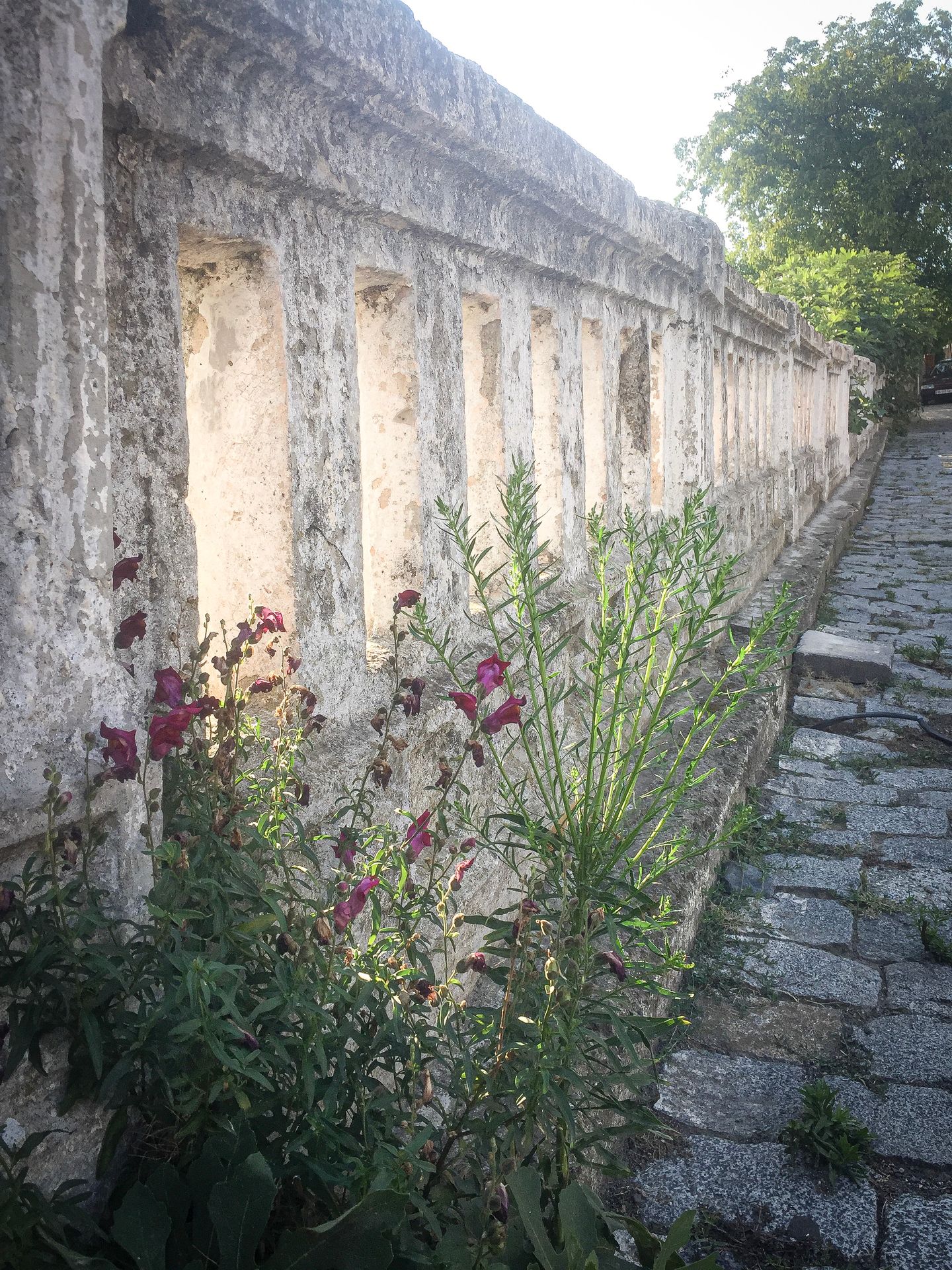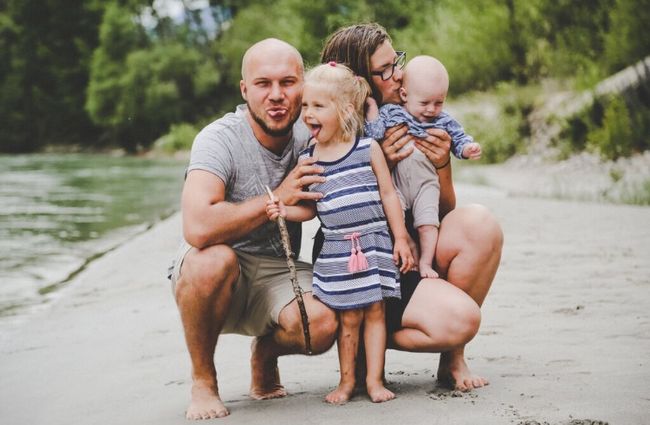
Grün am Wegesrand
vakantio.de/reise_ins_gruene
In tune with the waves and mosquitoes
प्रकाशित भइल बा: 29.01.2020
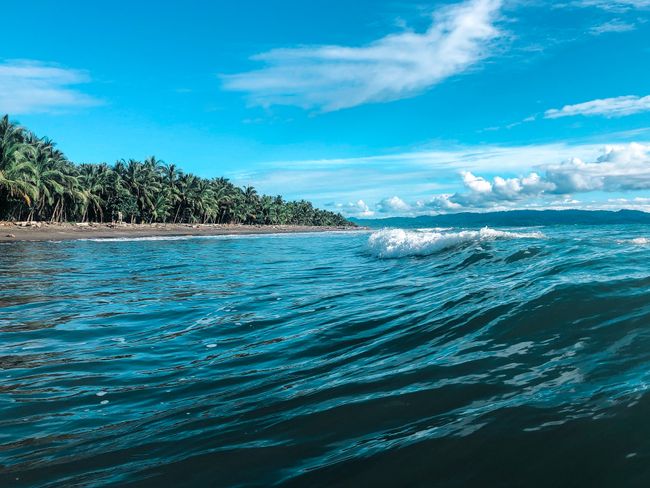
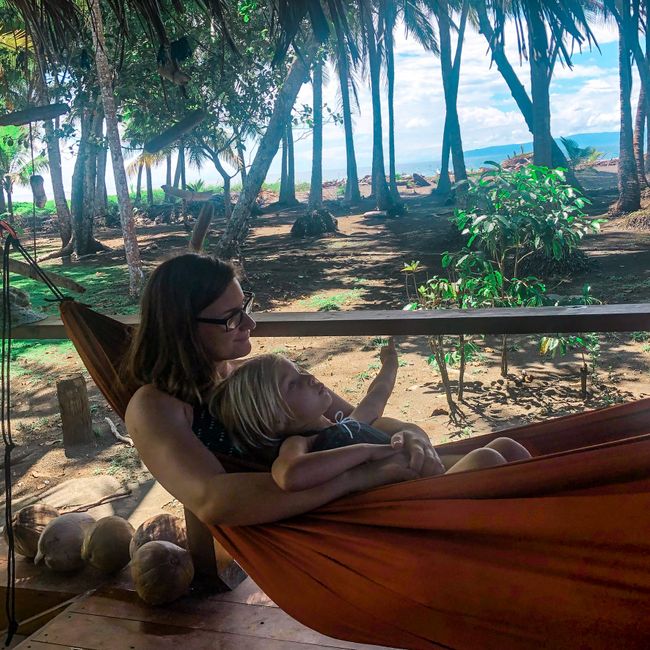
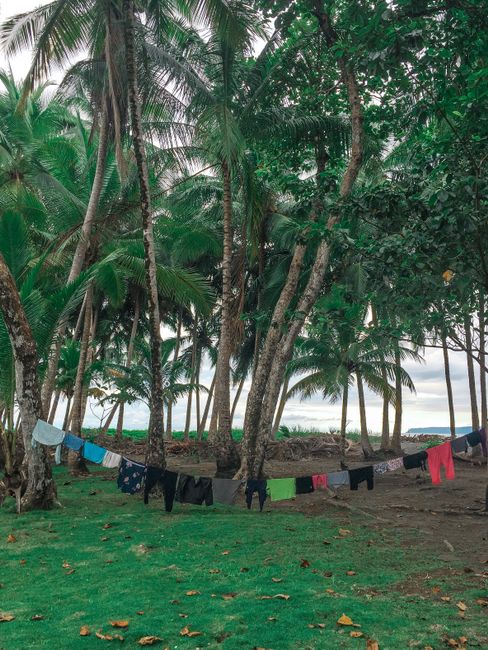
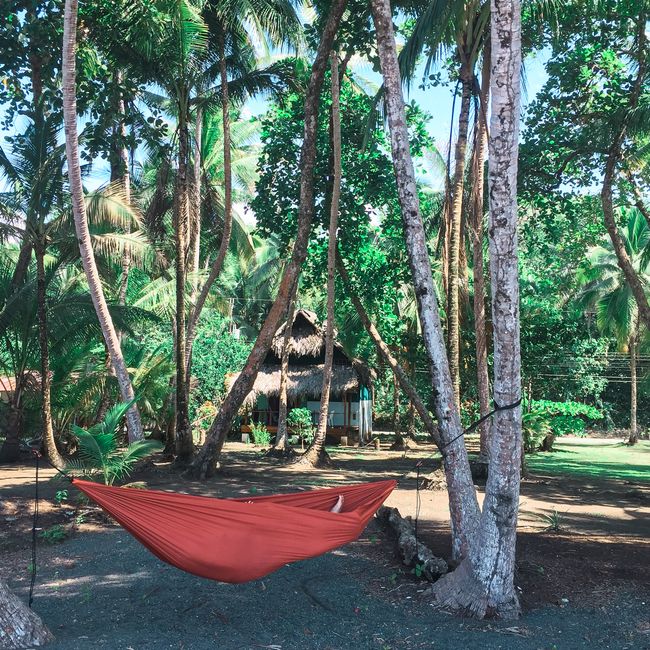
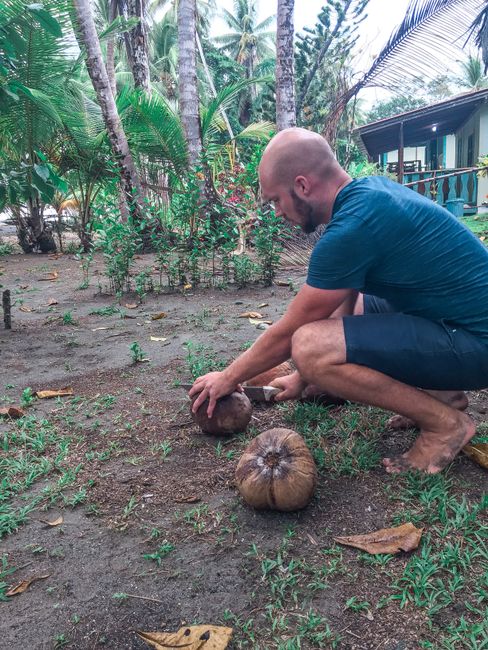
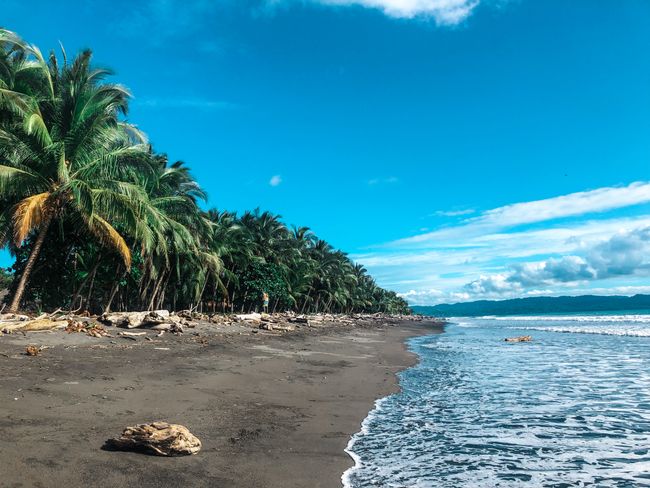
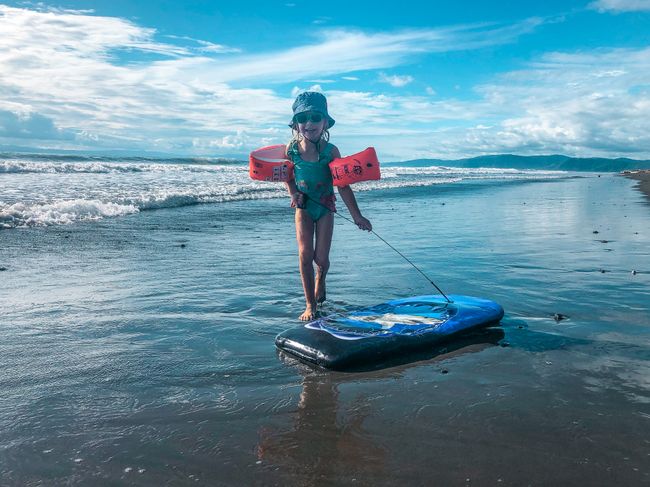
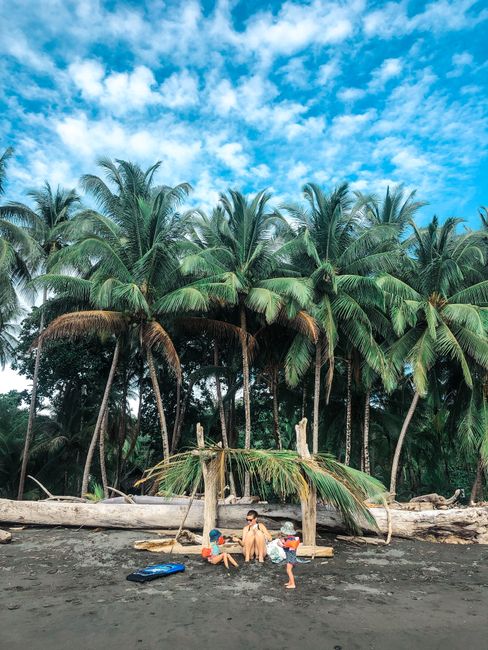
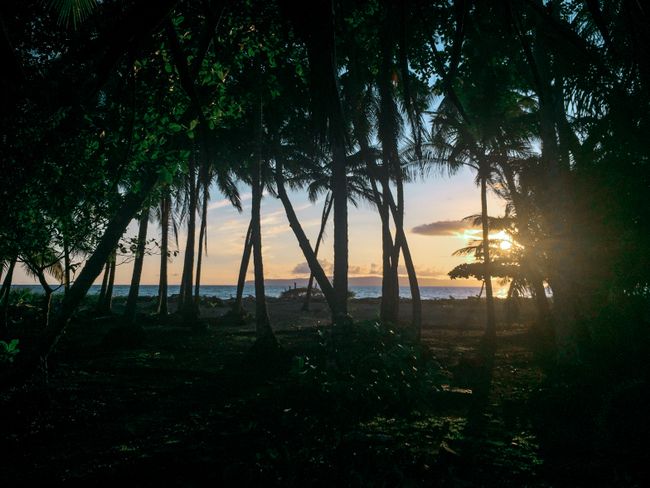
न्यूजलेटर के सब्सक्राइब करीं
Costa Rica! It looks like a wallpaper, and yet it's reality: we have arrived at a tropical beach. We could feel like Robinson Crusoe, if it weren't for the many other little huts where locals and American retirees live. But when we sit in front of our hut, all we see is the sea and the palm trees. Once we arrived here, the days and weeks glide by. There is only one rhythm, dictated by nature.
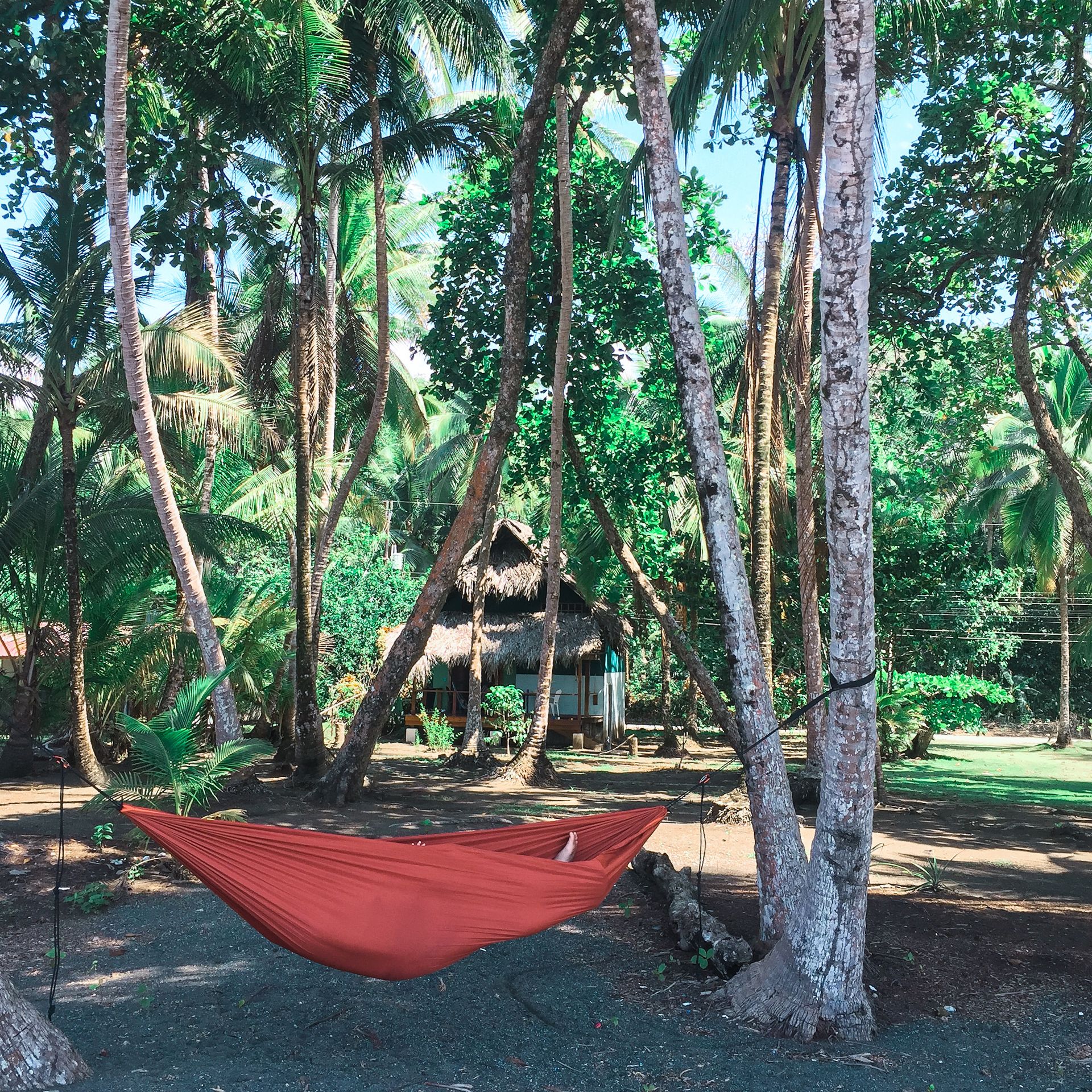
I have never been in a tropical setting before. In the wallpaper, so to speak. I have lived or visited many places in this world, but I have avoided anything more tropical than Florida (I don't count the three weeks in Indonesia when our oldest daughter learned to walk, because we were mainly on Bali and even the jungle trees on the roadside there seemed artificial, as if they were put up for tourists). And so I suddenly feel catapulted into this backdrop. Slowly, I am getting used to things like fresh coconuts, huge ants, and ubiquitous humidity. I try to understand how nature works here, so as not to clash or be engulfed. And I try to understand what people worldwide find so appealing about it. I am not even an ocean lover - diving and fish and deep water all scare me. Give me mountains, that sparks my spirit of exploration! The sea is only nice to look at. And I practice looking. What helps me? Waves. Waves. Waves.
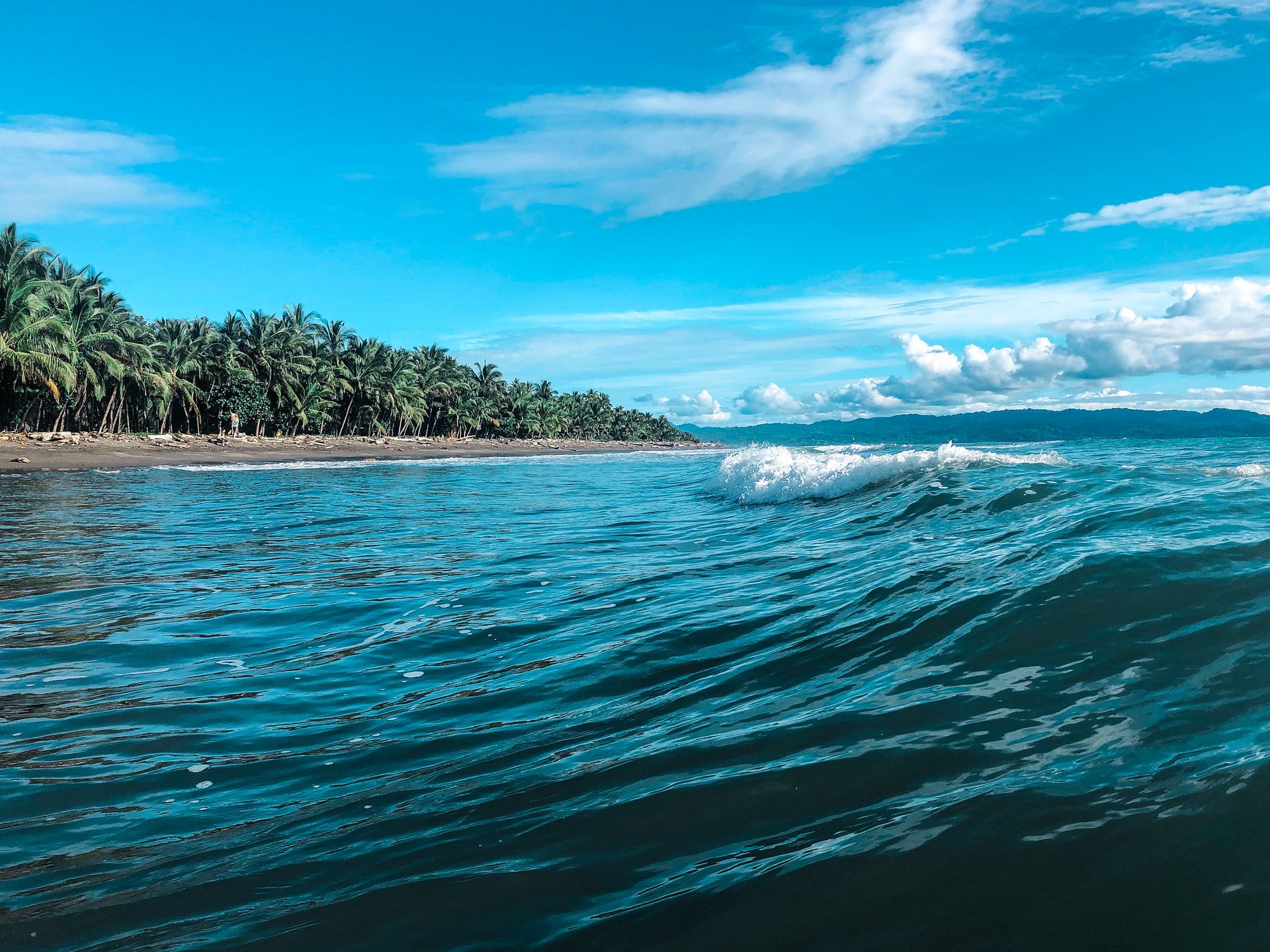
Waves are my new friends.
They come out of nowhere, but you can trust that they will come. They swell and then break. They transform from a smooth wave into a bubbling force within seconds. When they rebel and show their true beauty, when the spray splashes, that's when you stand before it, that one wave. It is strong and powerful. And then it gently carries you to the beach. Carrying and soothing. Rebelling and reconciling. Back and forth. Back and forth.
We wake up at seven in the morning. It's bright, it's warm, and the children are hungry. Although our hut consists of three floors, it is just one room. Fly screens are stretched in front of the open elements (like windows without glass). Therefore, the rule is: If one person is awake, everyone knows. We get up, have breakfast, and the children want to go straight to the beach. That's easy to manage: out of the door, walk 15 meters under the palm trees, and - voila - you're already on the beach. In the morning, the water has receded, revealing a large sandy area. Our children passionately dig, we let the waves roll over us in the eternal roar. Back and forth. In the morning, the sun is not so intense, wild pelicans glide gracefully just above the water, and it's empty (not that there would be people at any other time of the day). Didi keeps claiming to see dolphins... but only when I'm not there.

Around 11 o'clock, it gets hot on the beach. And then we are usually hungry. We go back to the hut, and I cook something. Culinary-wise, the locals seem to really love stability, because they traditionally have rice and beans at least three times a day. At least. In all variations. After discovering that the stale toast bread in the small supermarket around the corner costs about three times as much as in Switzerland, we prefer to adapt to the local culture. So we eat rice and beans once or twice a day. Otherwise, coconut - freshly opened with a machete -, papaya, avocado, or plantains are on the menu. We love that vegetables and fruits, which we sometimes bought exoticly in supermarkets, are so fresh and abundant here. By the way, you can drink tap water here in Costa Rica - how cool is that? It saves us and the environment a lot of carrying and plastic bottles.
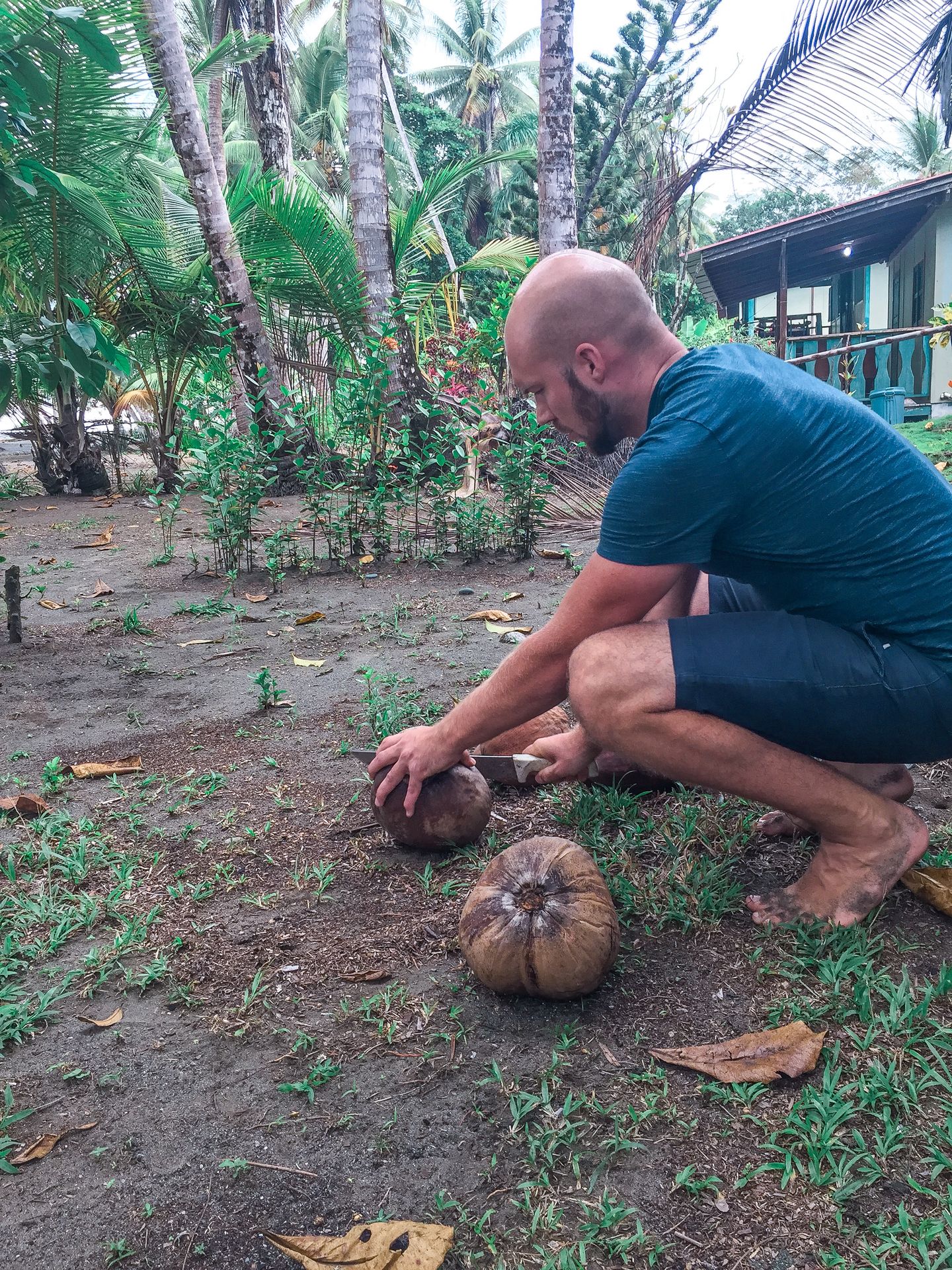
After eating, it's time to relax. And not just for an hour - a whole 2 hours. Because we want to stay in the shade until 3 o'clock - our skin dictates that. Luckily, we have a large terrace, which is practically the biggest room in the hut and completely covered. The palm trees in front of our house also provide a beautiful play of colors and refreshing shade. Our youngest, who has struggled with naptime in the past few months, is now dozing off in the hammock and cannot be awakened. Wonderful, we think. Our older daughter listens to her audio plays and quietly crafts - she also enjoys being undisturbed. And we adults read, half-sleeping in fantasy worlds, with the sound of the waves in the background.
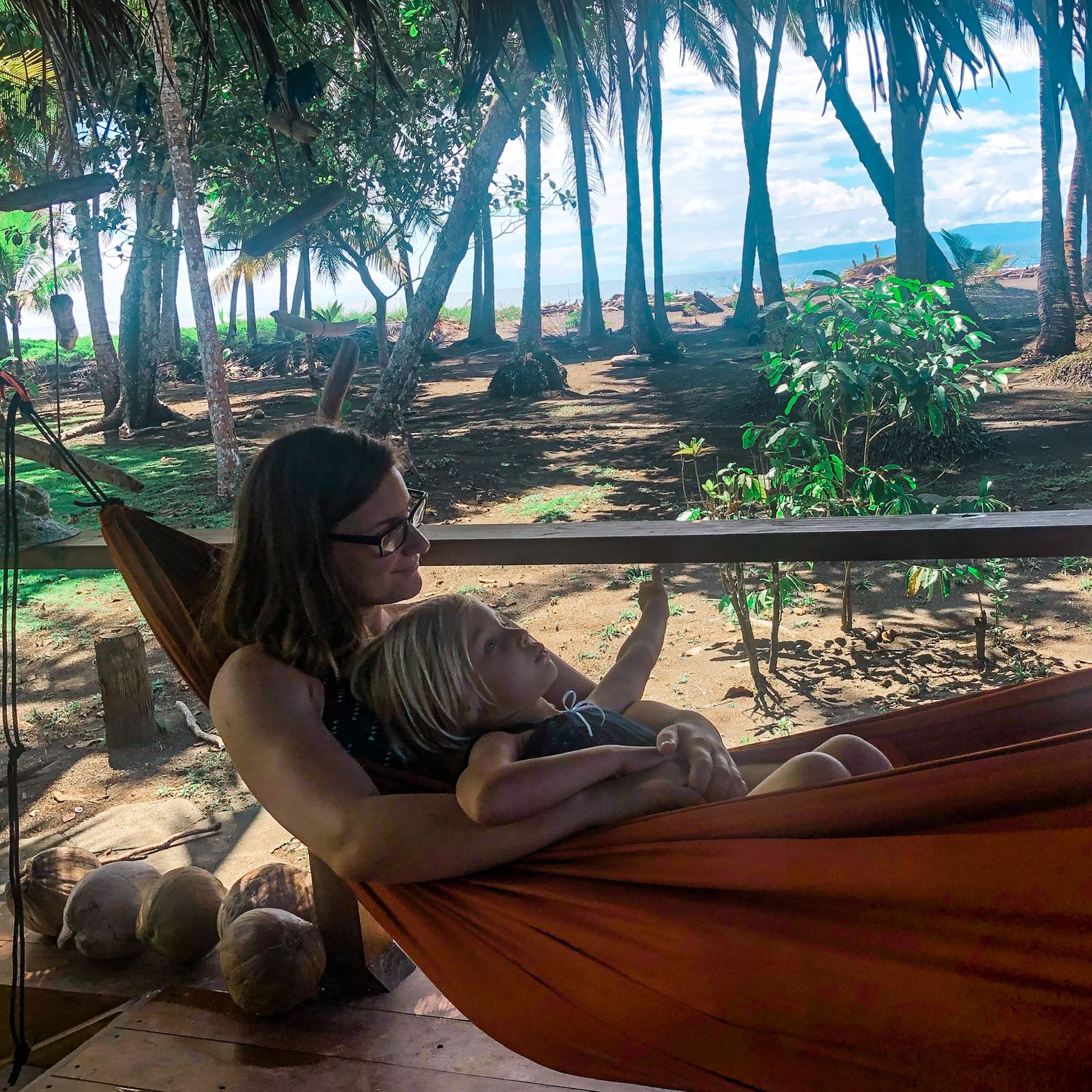
At some point, we manage to gather ourselves and run back to the beach. So far, the sea has always reclaimed the sand. The tide rises up to the driftwood that lies around here. What looks unpleasant in photos is actually a real treasure. So many beautiful woods, intertwined and polished. We keep discovering beautiful tree trunks.
Didi jumped right in and built a little hut, which is ideal for sitting in the shade. And so we play around, surrounded by waves, taking walks and enjoying the wind, the water, and the sand. Maybe we'll build a raft in the next few days. We'll see. Making plans here on the beach is a bit tricky. Calendars seem incredibly far away. We also arrived here with a bunch of dirty laundry and took days to organize the washing. Simply because no one felt like moving. And when you're wearing bathing suits all day, you don't feel the urge to wash dirty socks.
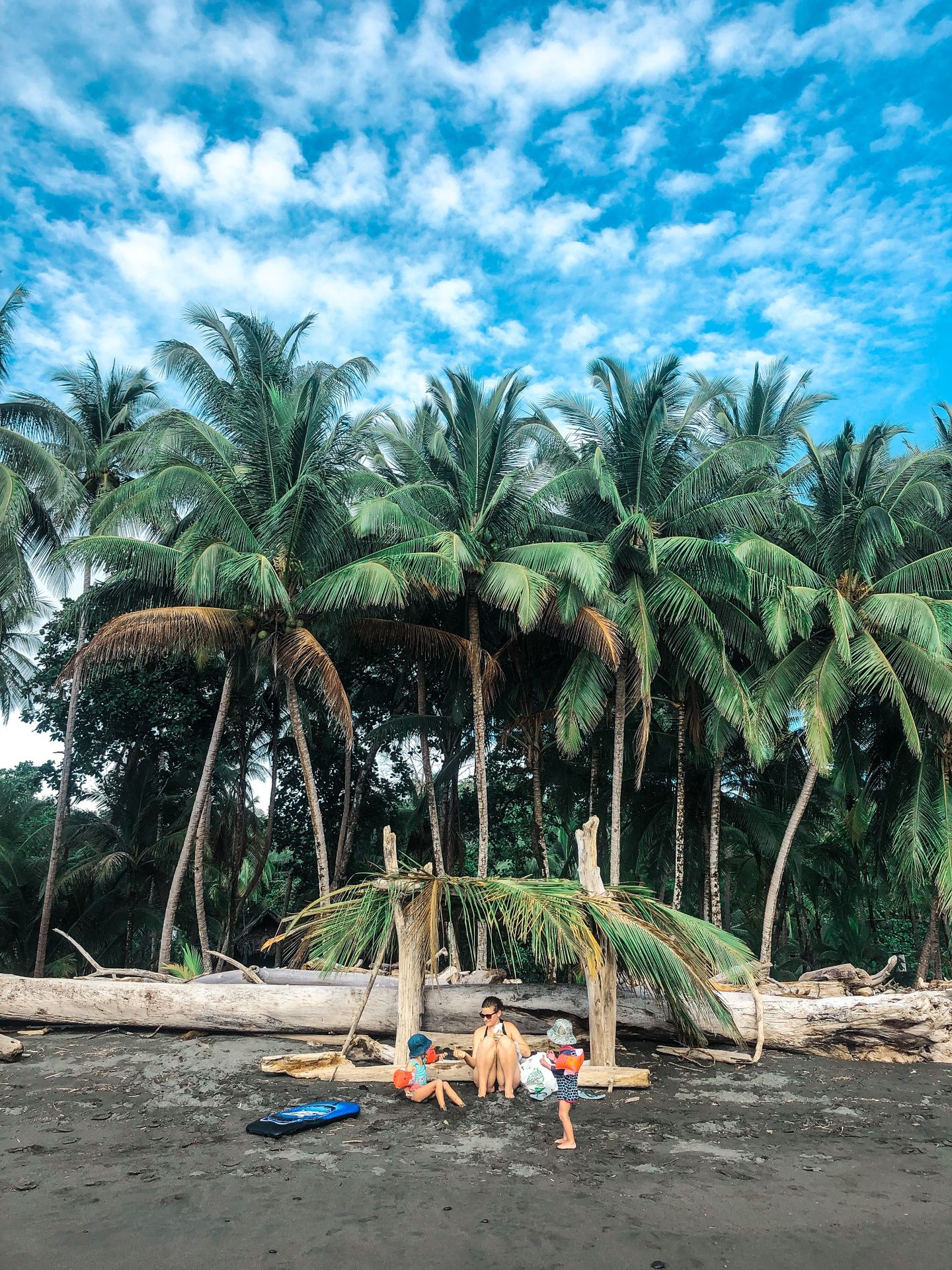
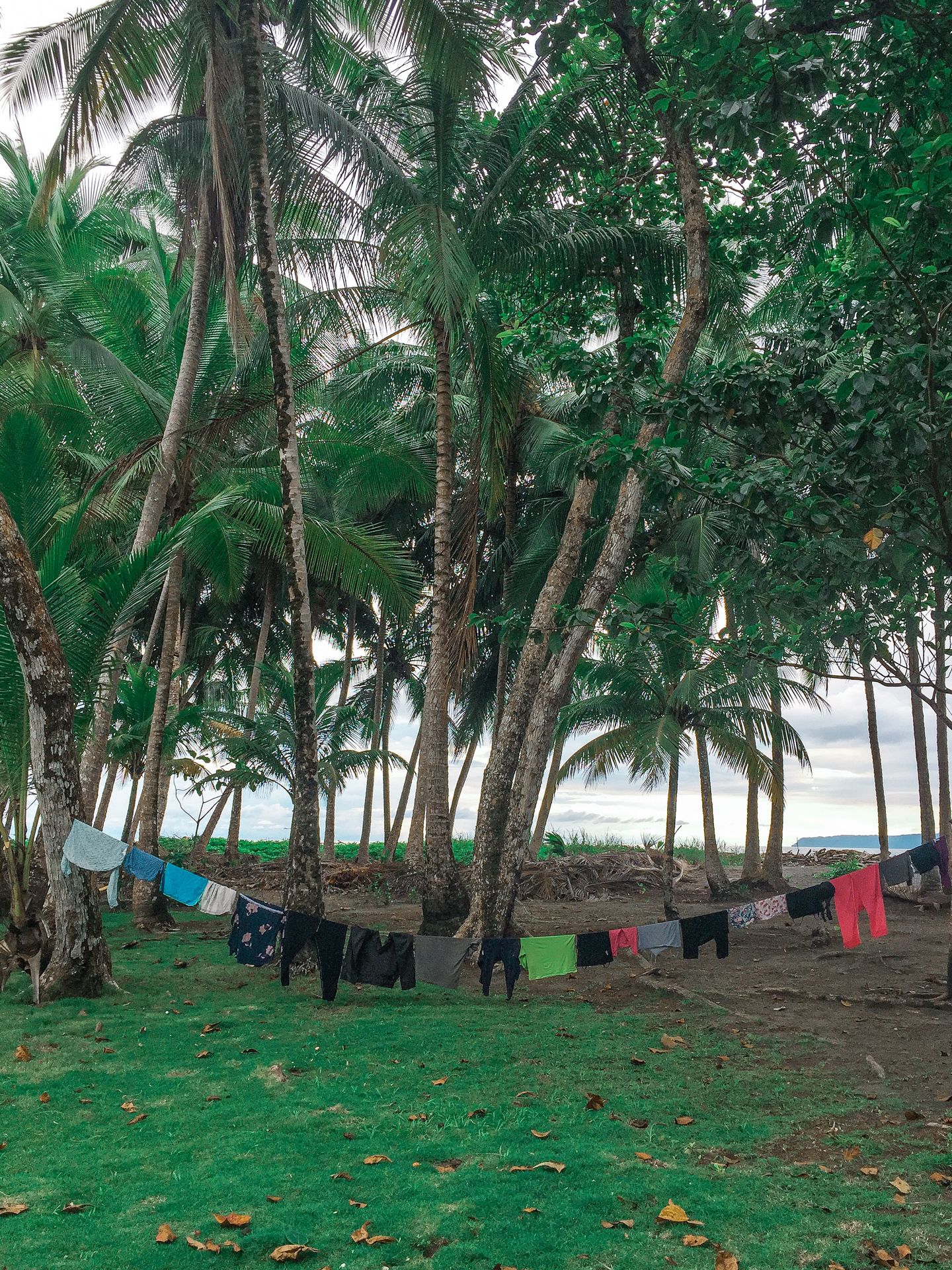
Shortly before it gets dark, we have to go inside. We made the mistake of walking around a bit on the first evening and never again. Because right on time for sunset, the mosquitoes arrive. In swarms. Across the street, on the other side, there is a swamp with a mangrove forest. Of course, everything is full of bugs. Not directly on the beach, but definitely 4 meters in front of it. The place here is called 'Playa Zancudo' and Zancudo apparently means mosquitoes. That says it all. Even a lot of insect repellent couldn't prevent them from devouring us on our first few evenings. And after walking around for days with red marks and itchy legs, we gave up and just went inside at six-thirty and never went out again. We cook our rice with beans, the children get ketchup, and we sit in our kitchen. Shortly after, it's completely dark. Really crazy, how early it gets dark in December, but without snow.

In such a simple hut - there are a few pots, plates, and forks - the household story is quickly told. Wash the dishes that you have just used. Done. But in the evening, we have to be very careful. We tie up the garbage bags and make sure there is no grain of rice left in the kitchen. All open food (and I mean literally all of it!), like cookies, rice, fruits, and bread, are stored in the fridge. Because as soon as we turn off the light in the kitchen, the dark realm of ants and cockroaches begins. And we really don't want to share our food with them.

It feels like it's already very, very late. But it's usually only 7 o'clock when our children become restless and we put them to bed. Maybe it's the fresh air or the water, but they fall asleep right away. And we adults don't stay up too late either (those who know us know that this is not normal) and fall asleep at a time when our productivity would normally just begin. Maybe we are catching up on the sleep that we didn't allow ourselves during all those intense moments with friends and family in the past few months. Maybe we just let ourselves be carried away by the wave, which blurs our days here and brings the light. The rhythm to which we adapt here, which is somehow very relaxed. So relaxed that we don't think about anything else. Actually, we're looking for a place where we can stay longer, with kindergarten and language lessons, but somehow the waves are holding us captive. And we allow it. Carry away and be carried. Rebel and reconcile. Back and forth.
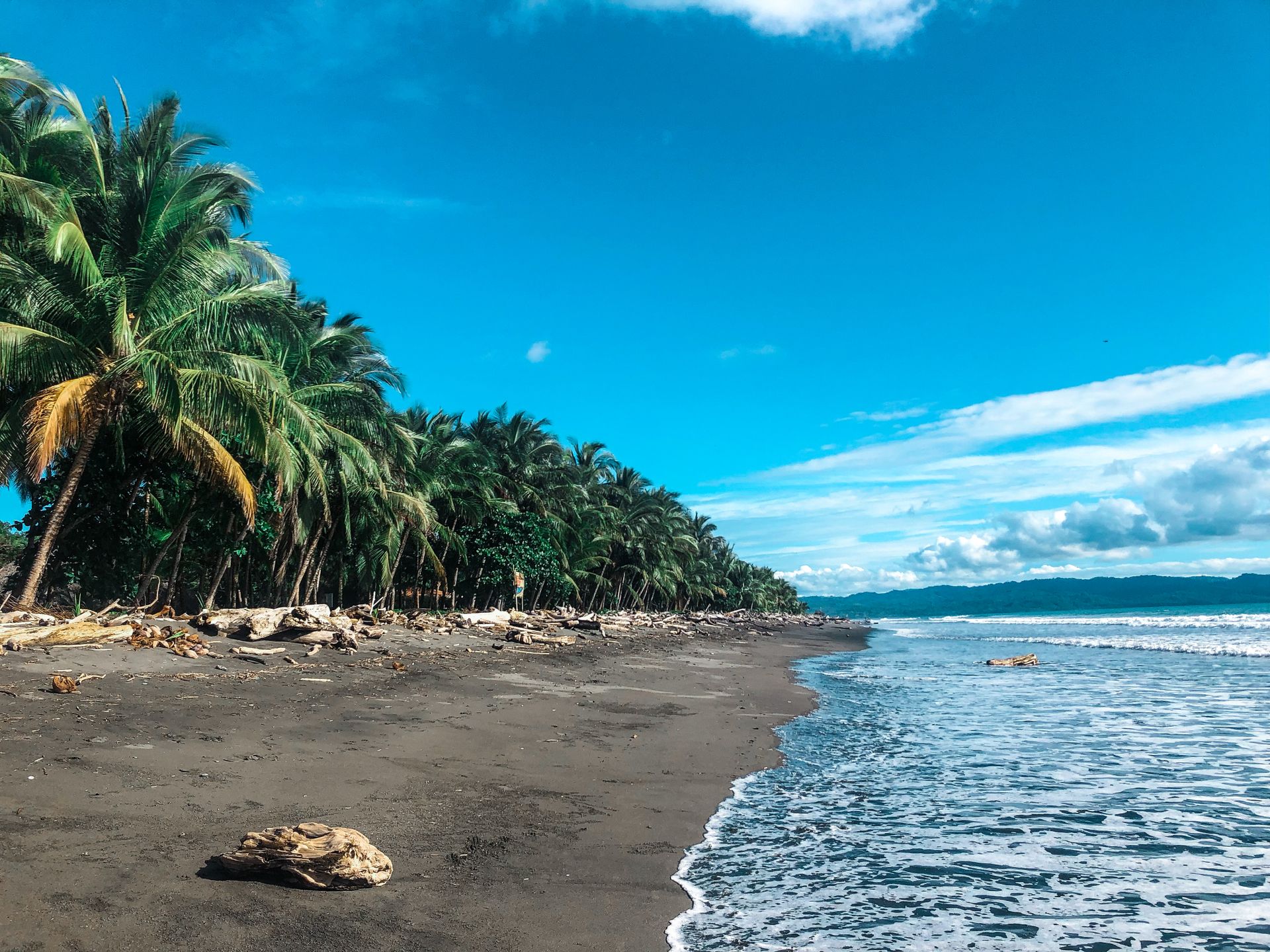
Back and forth.
न्यूजलेटर के सब्सक्राइब करीं
जबाब (3)
Toni
Wow, cool 😀 entschleunigen und geniessen.
Tolle Bilder und ein mitreissender Bericht, der dich total relaxt - wie die Wellen😊👍Tabea
sehr toll! schön, dass ihr alle zur ruhe kommt!Mahala
Danke ihr! Wir würden diesen Ort und das feeling gerne mit euch teilen ☺️👍🏻 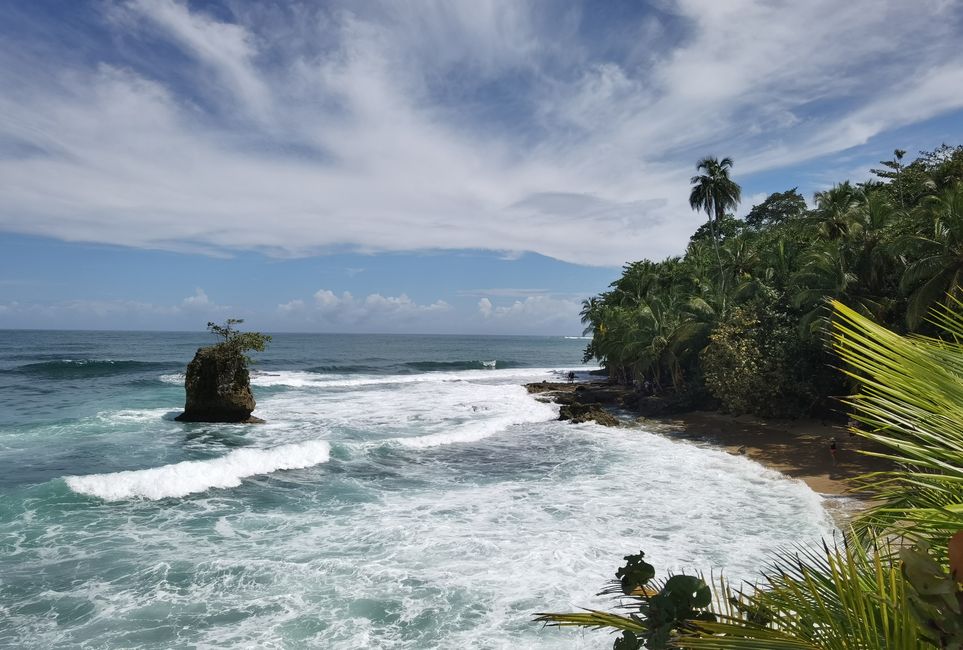
यात्रा के रिपोर्ट कोस्टा रिका के ह बा।
